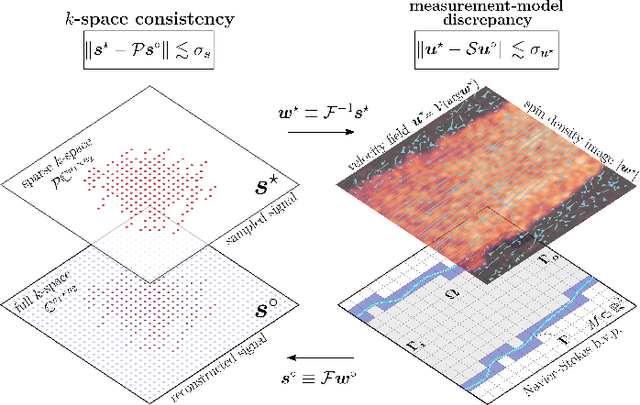Physics-informed compressed sensing for PC-MRI: an inverse Navier-Stokes problem
Paper and Code
Jul 04, 2022



We formulate a physics-informed compressed sensing (PICS) method for the reconstruction of velocity fields from noisy and sparse phase-contrast magnetic resonance signals. The method solves an inverse Navier-Stokes boundary value problem, which permits us to jointly reconstruct and segment the velocity field, and at the same time infer hidden quantities such as the hydrodynamic pressure and the wall shear stress. Using a Bayesian framework, we regularize the problem by introducing a priori information about the unknown parameters in the form of Gaussian random fields. This prior information is updated using the Navier-Stokes problem, an energy-based segmentation functional, and by requiring that the reconstruction is consistent with the $k$-space signals. We create an algorithm that solves this reconstruction problem, and test it for noisy and sparse $k$-space signals of the flow through a converging nozzle. We find that the method is capable of reconstructing and segmenting the velocity fields from sparsely-sampled (15% $k$-space coverage), low ($\sim$$10$) signal-to-noise ratio (SNR) signals, and that the reconstructed velocity field compares well with that derived from fully-sampled (100% $k$-space coverage) high ($>40$) SNR signals of the same flow.
 Add to Chrome
Add to Chrome Add to Firefox
Add to Firefox Add to Edge
Add to Edge